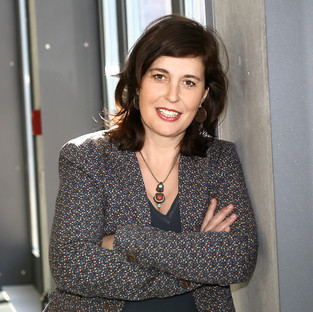'Desired Children' in Germany and India as Context for Prenatal Diagnostics and Selective Abortions."
Department of Medical Ethics and History of Medicine

Funding: Deutsche Forschungsgemeinschaft (DFG)
Duration: 2014-2017
Carried out by:
- Dr. Sheela Saravanan
- Julia Perry, M.A.
Summary
Prenatal and preimplantation genetic diagnosis allows people to select their desired children according to genetic characteristics, such as gender and disability. Known reasons for such selective abortions include attributes such as (un)desired gender, sensory, cognitive or physical impairments, or desired genetic characteristics. Ethical voices and the gender/disability rights movement worldwide have raised concerns that prenatal screening to select attributes of children based on sex, disease, or disability is morally problematic because it embodies and reinforces prejudice and sends a hurtful message to people with these attributes. The purpose of this study is to examine individual conceptions of a desired child (Wunschkinder/Vansh) shaped by social experiences that lead to selective abortion in the German and Indian contexts. The research draws conceptually on the work of Mead (1962), symbolic interactionism between the self and the generalized other, Lindemann (1996), Kessler and McKenna (1978), gender and disability as a social construct in the context of body and womb in shaping the concept of wishful child. This study utilizes the methodological approaches of Garfinkel (1967), phenomenology in ethnomethodology as they provide insight into individual behavior/thoughts and forms of social organization. Qualitative methodology of in-depth interviews will be used in clinical and family contexts in Germany and India with mothers and relatives, and structured interviews will be conducted with physicians and staff of research institutions and selected government programs. This will add conceptually and methodologically to the knowledge of the theories and research methods indicated above. Cross-cultural analysis is an essential aspect of this study because it will bring deeper life mechanisms embedded in different cultural frameworks to light. The concept of wanted children in Germany and India has not been studied before, thus the aim of this study is to fill this gap and contribute in a unique way to the ongoing socio-ethical debates on prenatal screening and selective abortions.
Related institutions
Prof. Tulsi Patel
Delhi School of Economics
University of Delhi
Prof. Dr. med. Günter Emons and Frau Dr. med. Barbara Felke
Die Universitätsfrauenklinik Göttingen.
Robert-Koch-Str. 40, 37075 Göttingen
(http://wwwuser.gwdg.de/~ukfh/UFK/perinatalzentrum.html)
